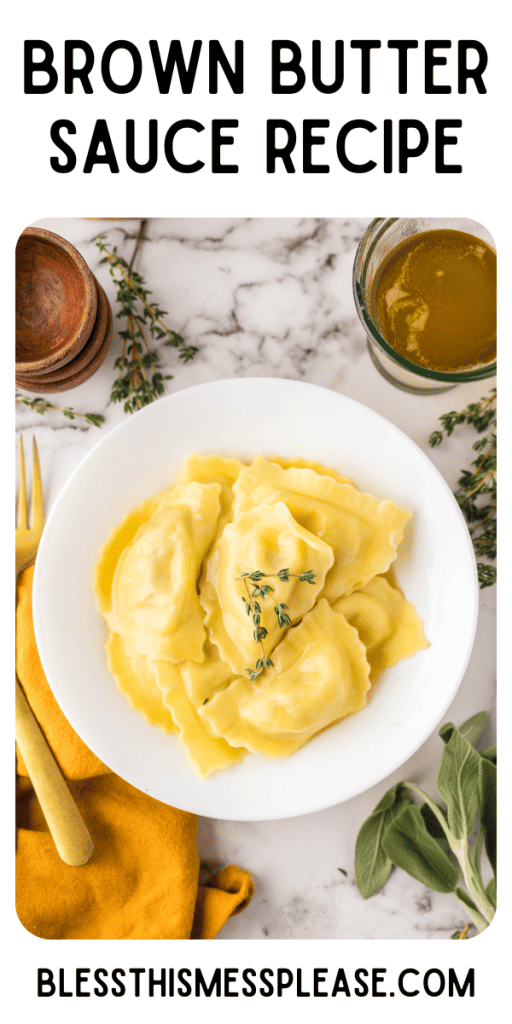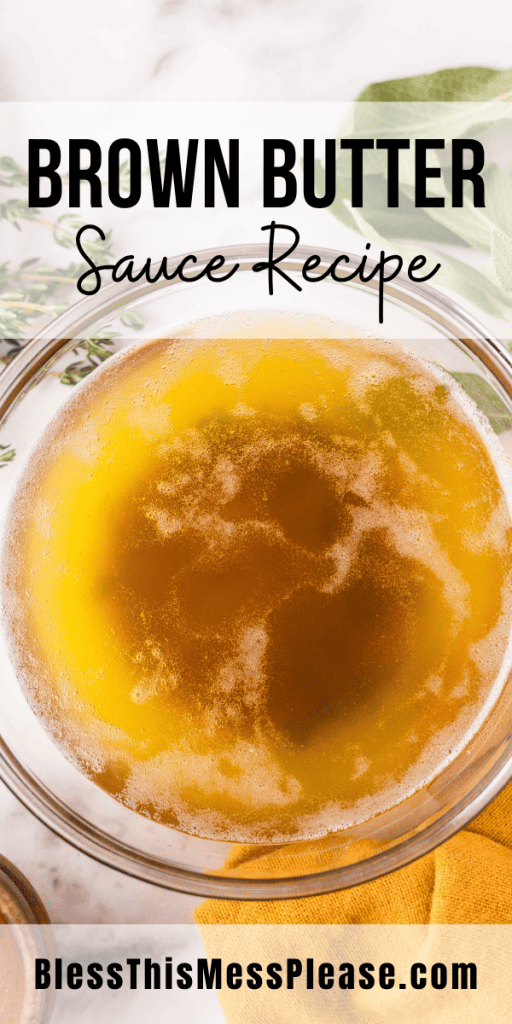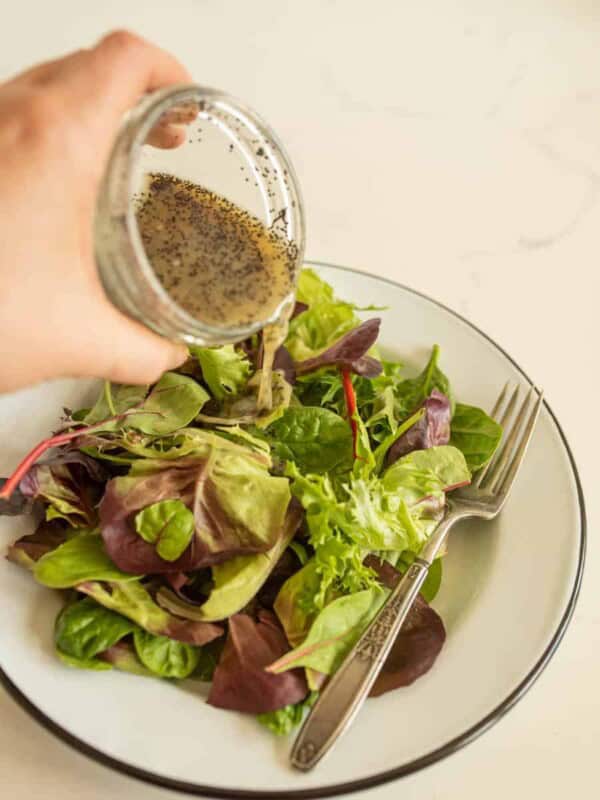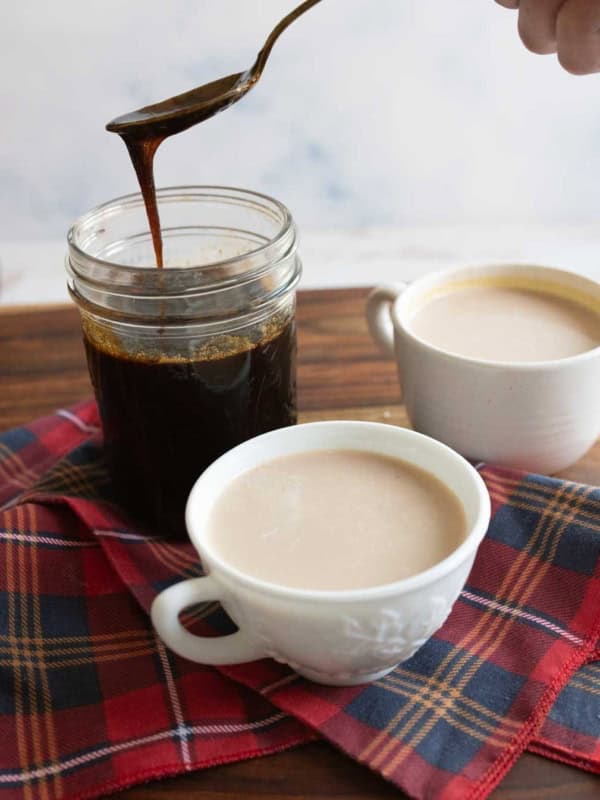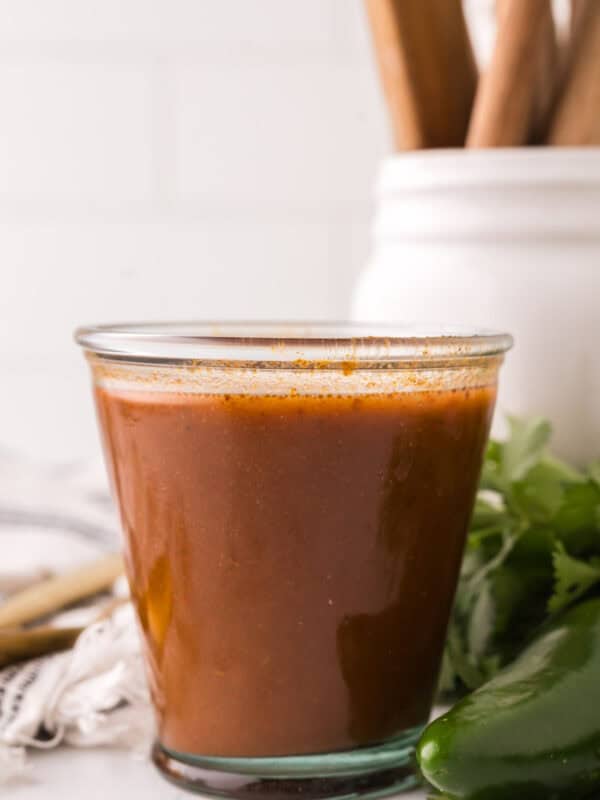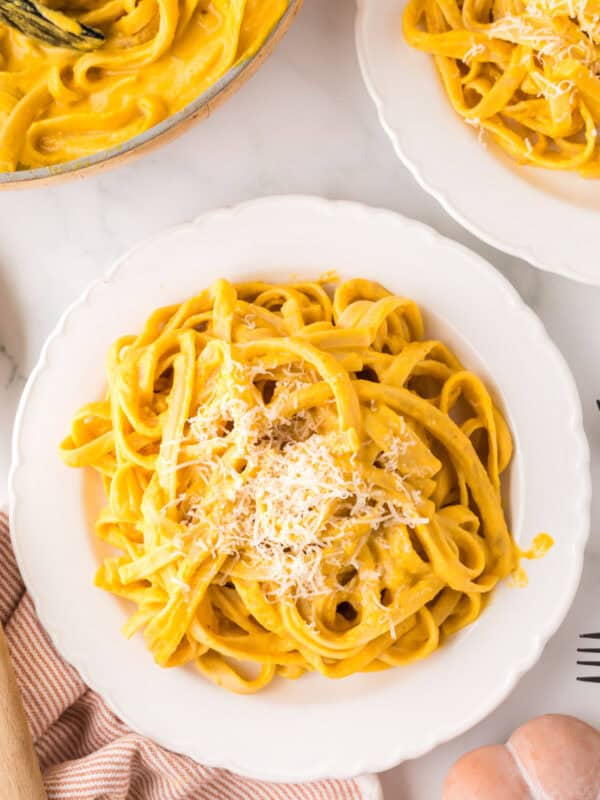Brown Butter Sauce
on Jan 22, 2024, Updated Mar 08, 2024
This post may contain affiliate links. Please read our disclosure policy.
With only a few ingredients and little to no time you can make the perfect sauce for a variety of dishes! Brown Butter Sauce is earthy, rich, smooth, and adds depth to every dish it’s added to.
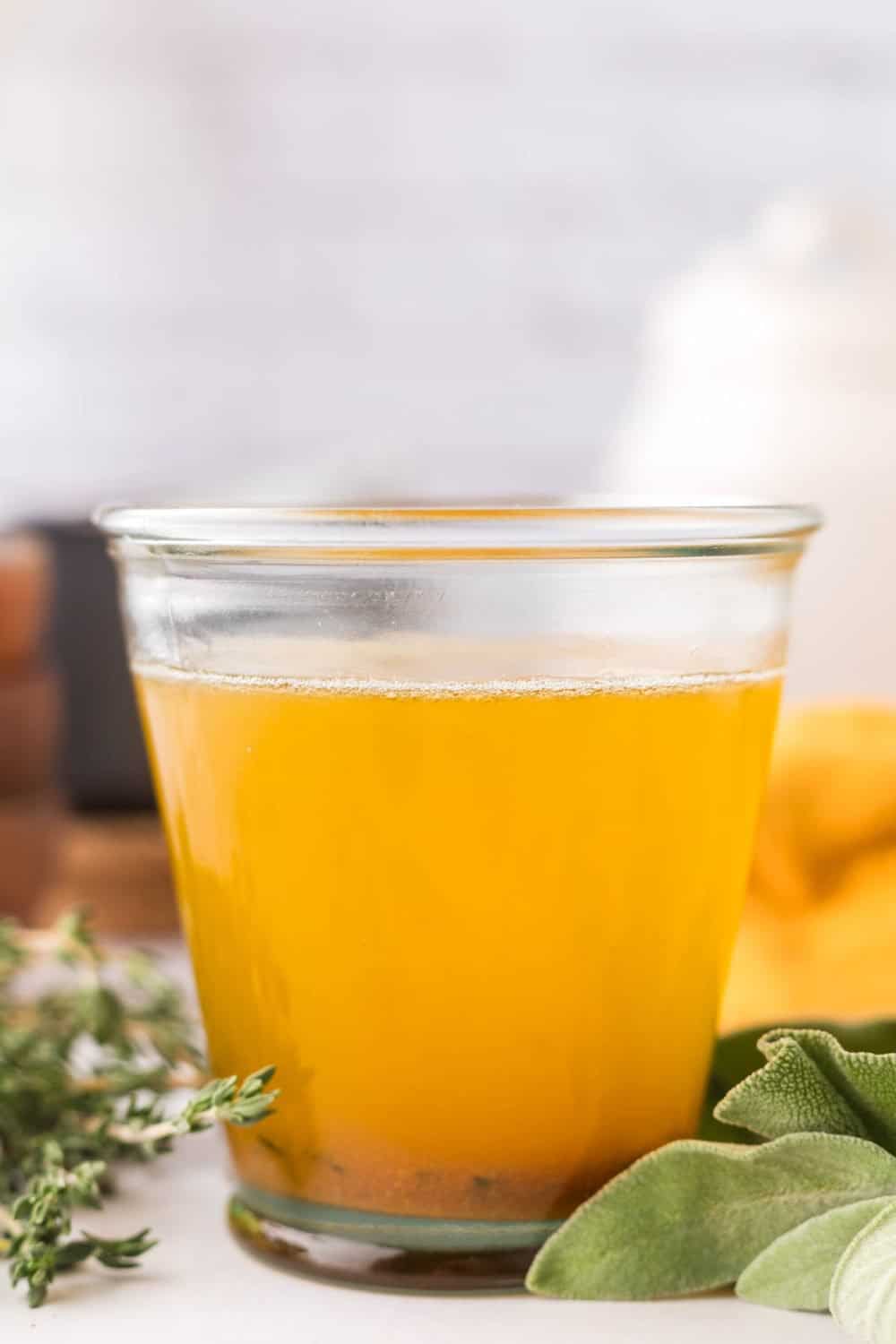
If you are looking for a simple and easy sauce to elevate your next batch of roasted potatoes or pasta, then you have come to the right place! I absolutely love how easy this brown butter sauce is to throw together. You only need a few ingredients, a saucepan, and the stove. The fresh thyme and sage adds just the right amount of flavor and depth to the sauce.
Although this sauce is best served over pasta, we also like to drizzle it over roasted potatoes or butternut squash! The subtle nature of brown butter sauce might make it seem like it won’t do much, but I promise it will be the best addition to your next dish of ravioli!
Table of Contents
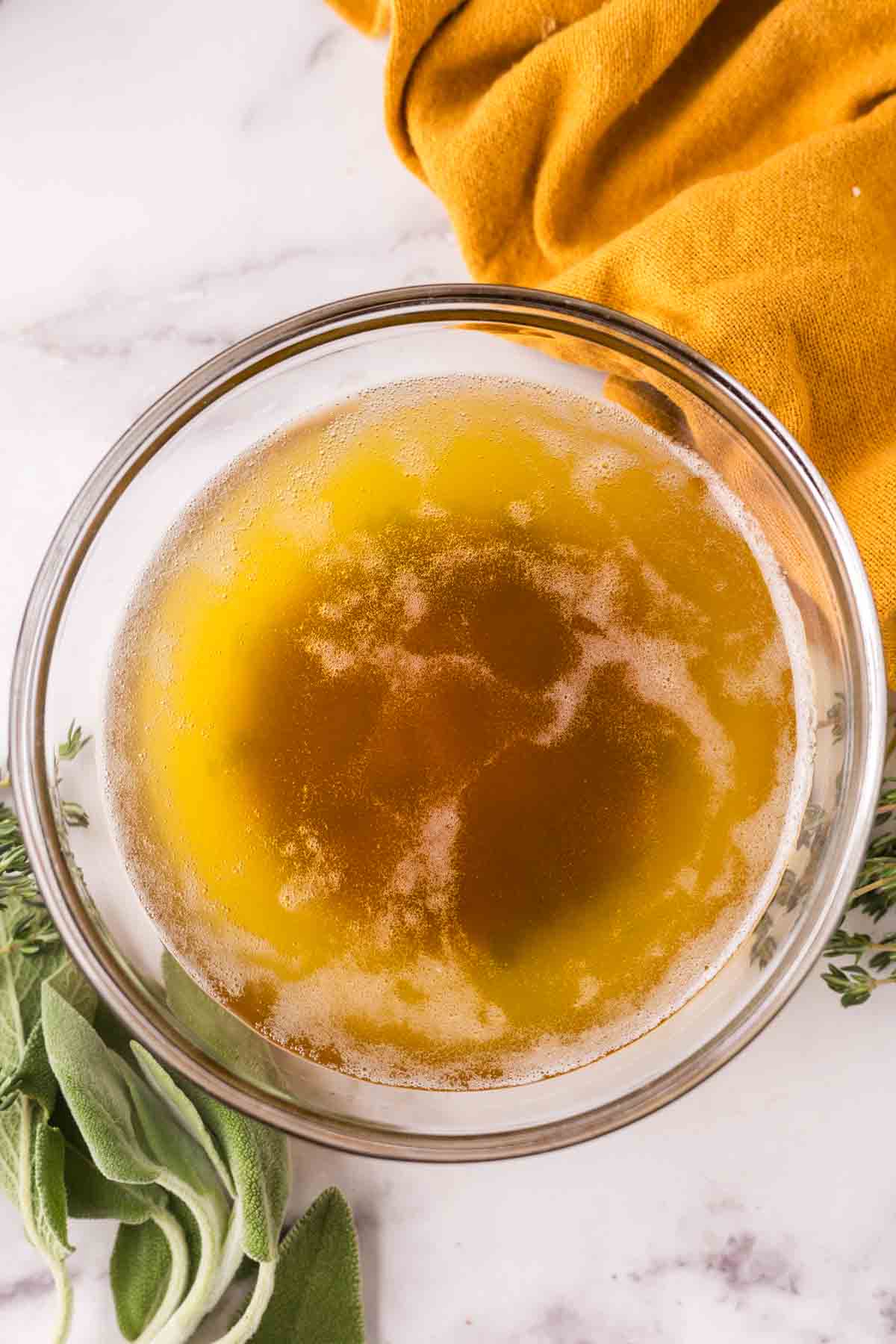
Why You’ll Love This Recipe
- It has a rich, deep flavor that compliments a variety of savory meals.
- Can be prepared in just a few minutes and adds a great dimension to your dish.
- Only takes a few ingredients and lasts for a long time in the fridge.
Recipe Ingredients
- Salted Butter—The base of the sauce. You can also use unsalted butter and add salt.
- Fresh Thyme—Adds a slightly peppery taste to the sauce.
- Fresh Sage—Gives the butter an earthy and slightly sweet flavor.
See the recipe card for full information on ingredients and quantities.
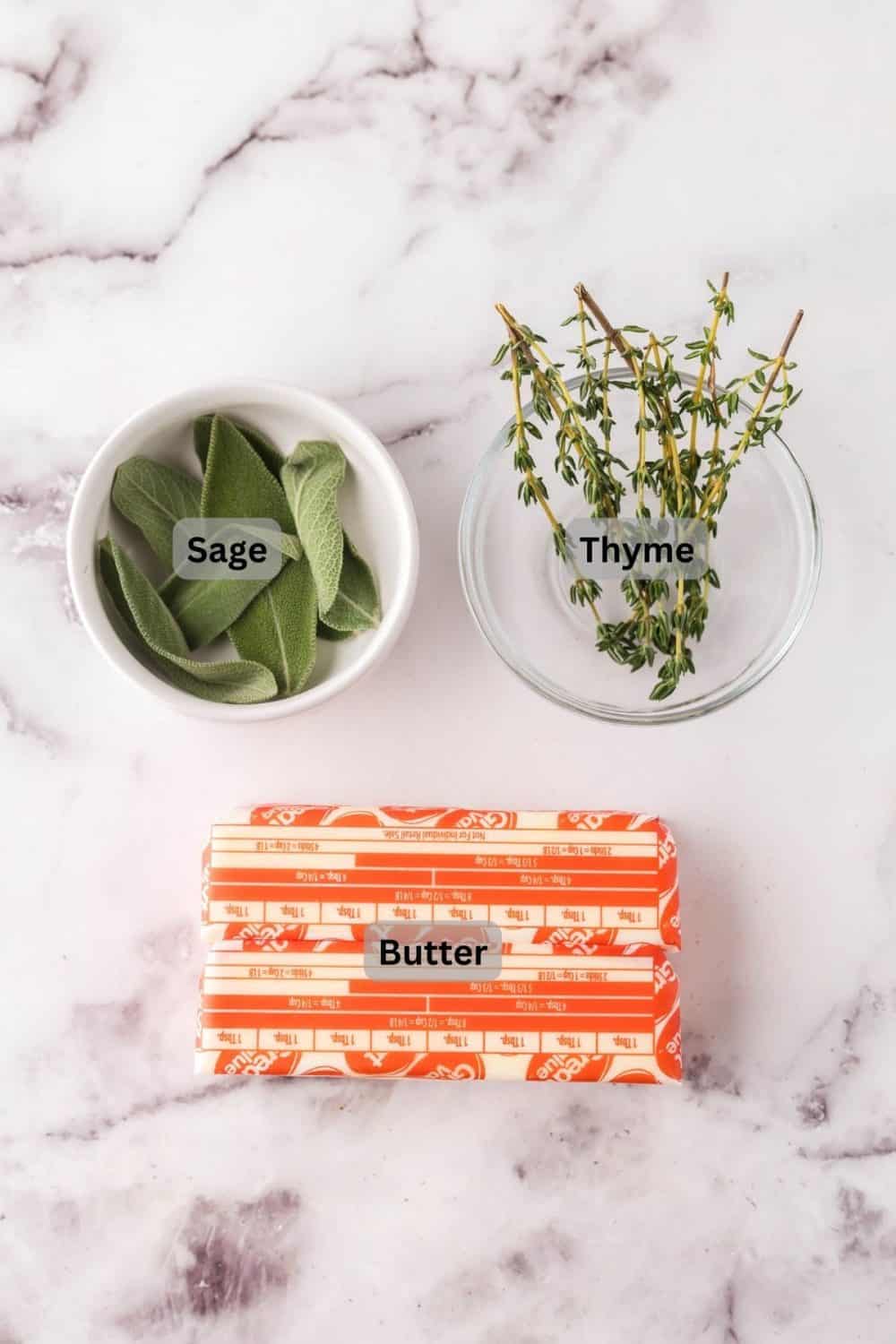
How to Make Brown Butter Sauce
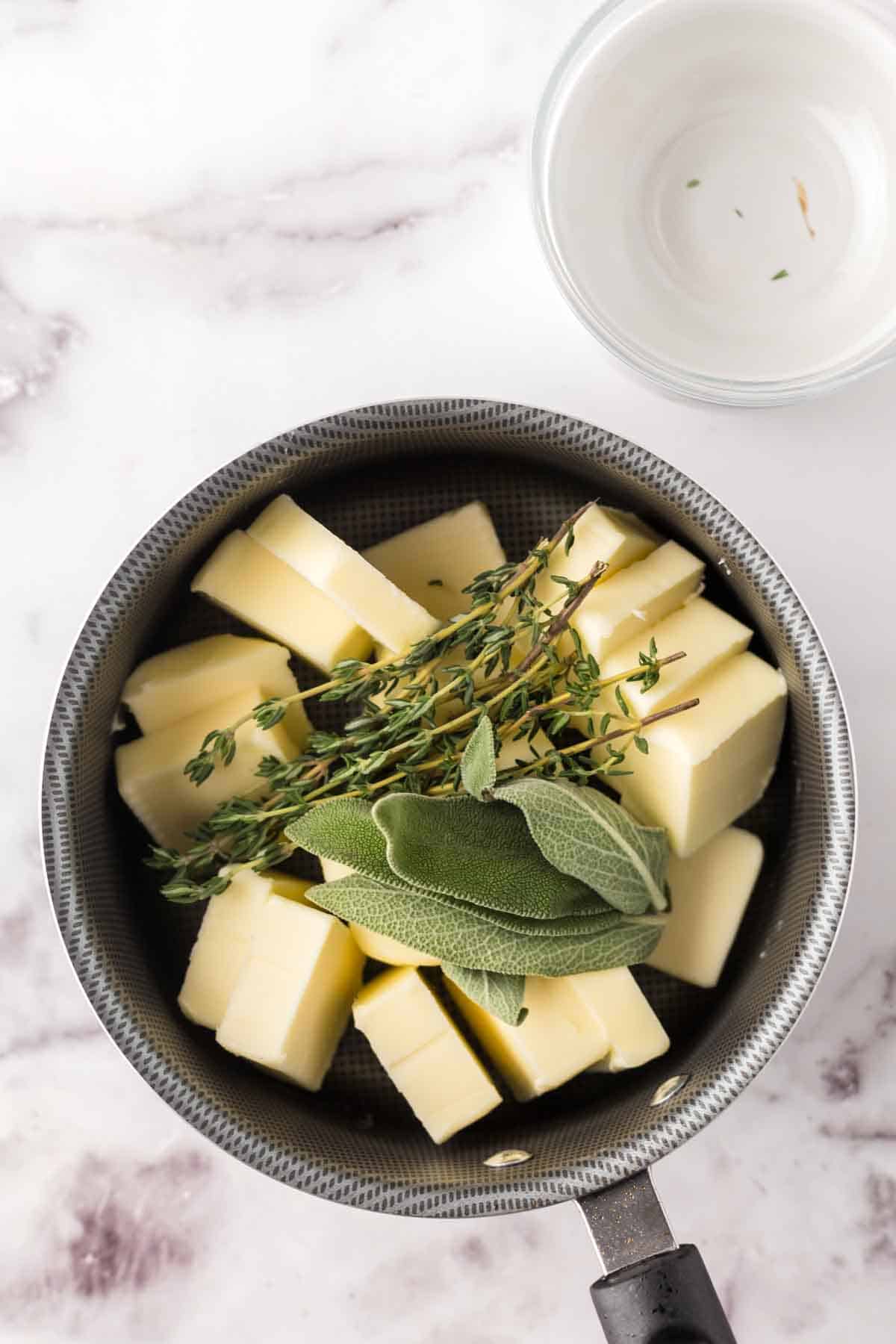
Step #1. Heat the butter, thyme, and sage in a small saucepan.
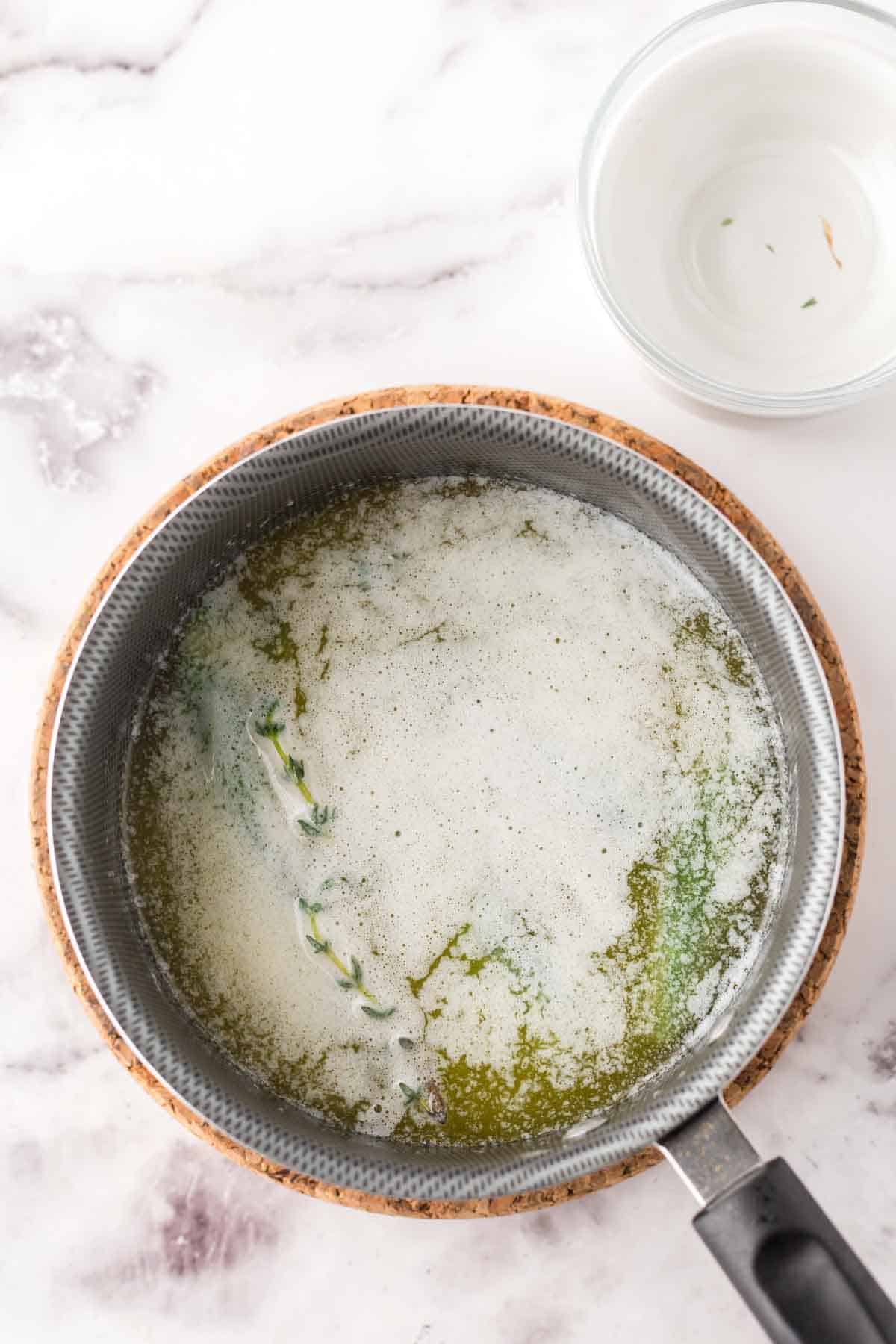
Step #2. Once the butter is melted, reduce the heat and stir the mixture constantly.
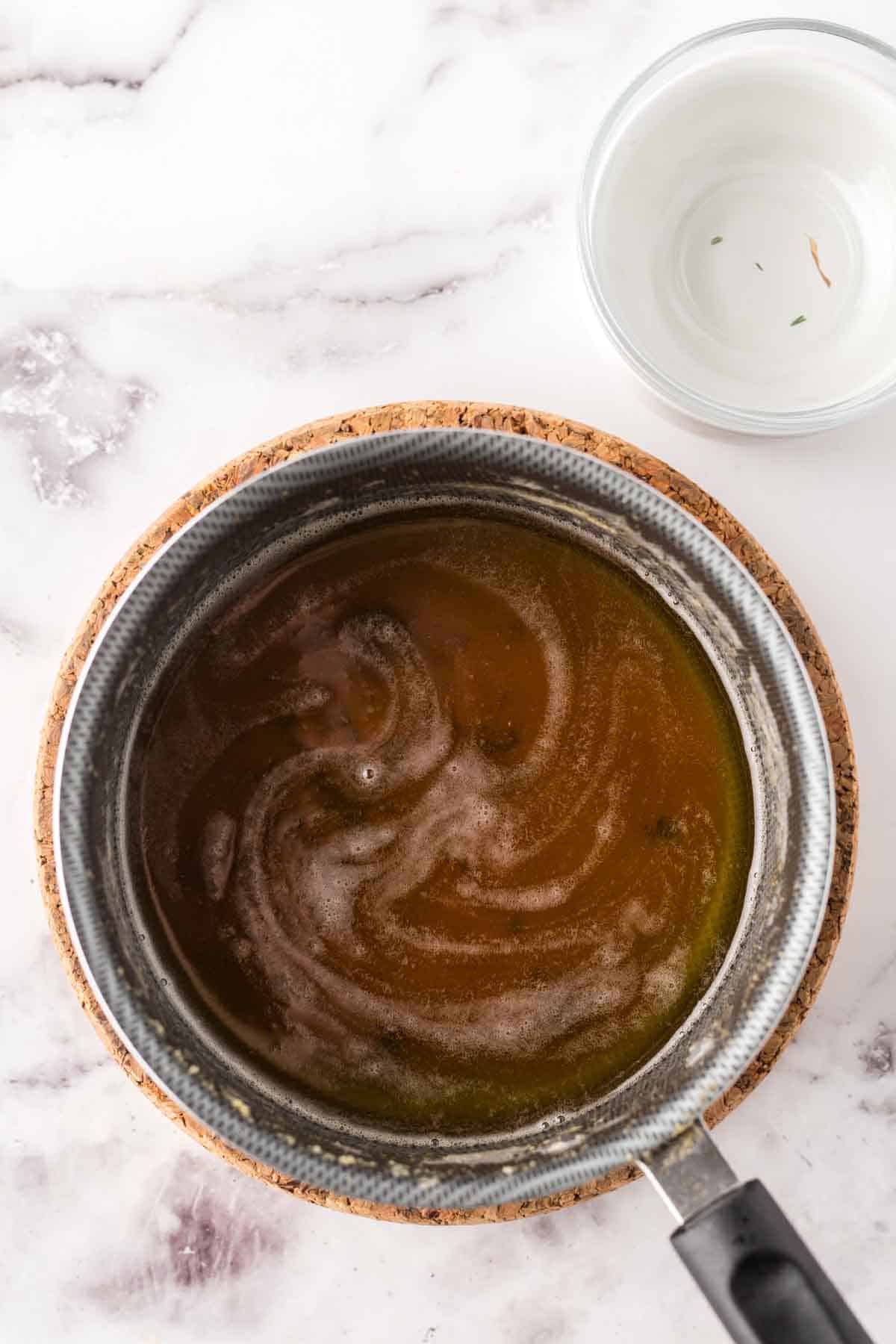
Step #3. After the butter turns golden brown, immediately remove the saucepan from the burner.
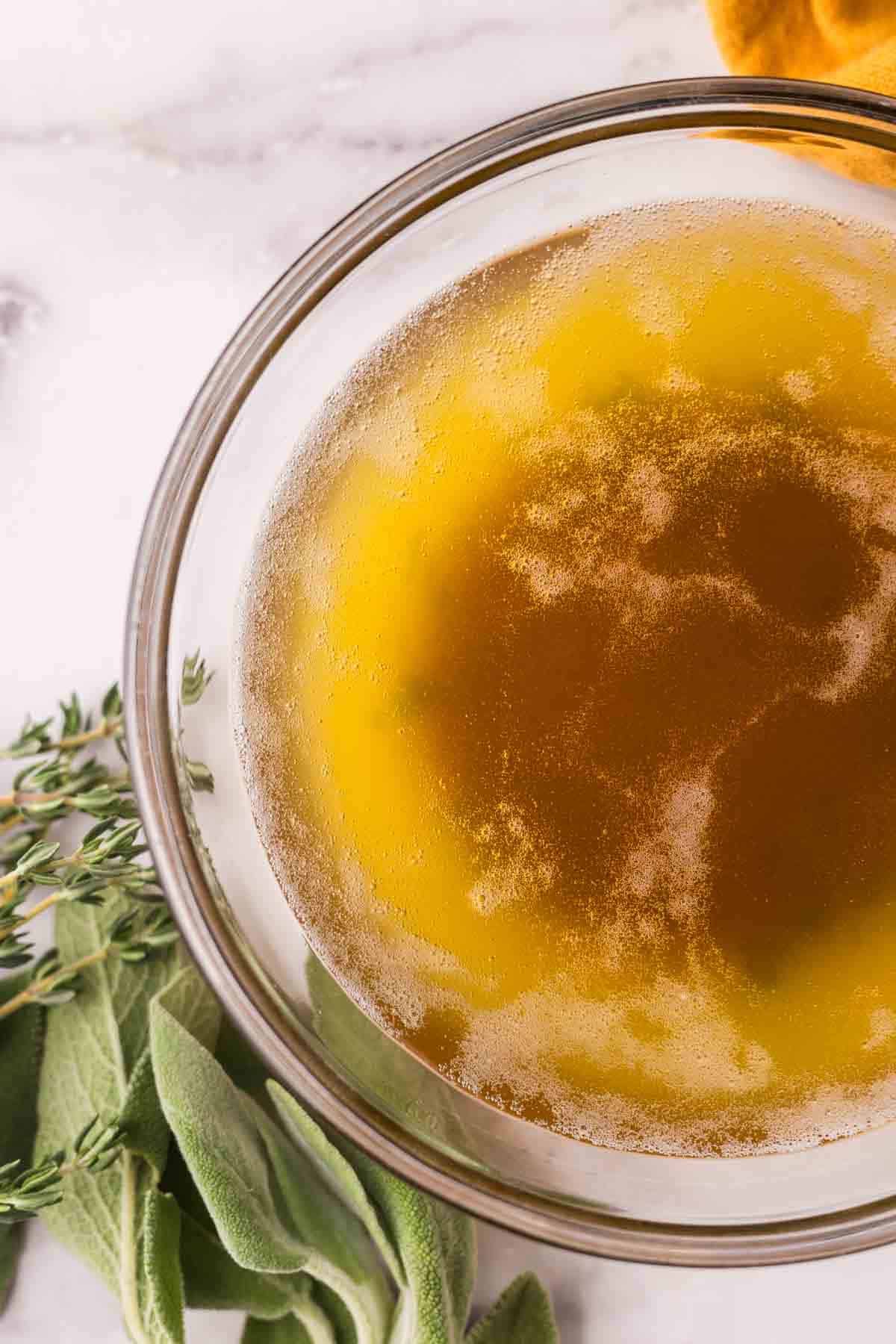
Step #4. Discard the herbs. Serve and enjoy!
Recipe FAQs
Brown butter alone is commonly used in baking and pastry making. It has a rich and almost nutty flavor to it. By adding the fresh thyme and sage leaves in this recipe, the sauce will have more dimension and flavor. It tastes very earthy and savory with faint hints of sweetness provided by the fresh herbs.
Yes, it is possible to burn your browned butter. There are steps you can take to prevent this, and signs to know if your butter is burned rather than browned. Firstly, be sure to reduce your stovetop to medium heat once the butter is finished melting. Basically, to make sure the butter does not burn, it is imperative that you continue to stir it while it is over heat. Forgetting to stir the butter will cause it to stick to the bottom of the pot. After it foams and you see specks of brown on the bottom, you will know it is ready to be taken off the heat. If left on too long, it will become a dark brown color and have a burnt smell. Above all, be diligent and keep an eye on the butter as it cooks to know when it is done.
Sage leaves are a traditional part of this brown butter sauce and help give it a distinct rich taste. You can use dried sage in a pinch, but it will tone down the flavor a little bit! If you are using dried sage then you don’t have to worry about removing anything once the butter is browned. The same goes with dried thyme.
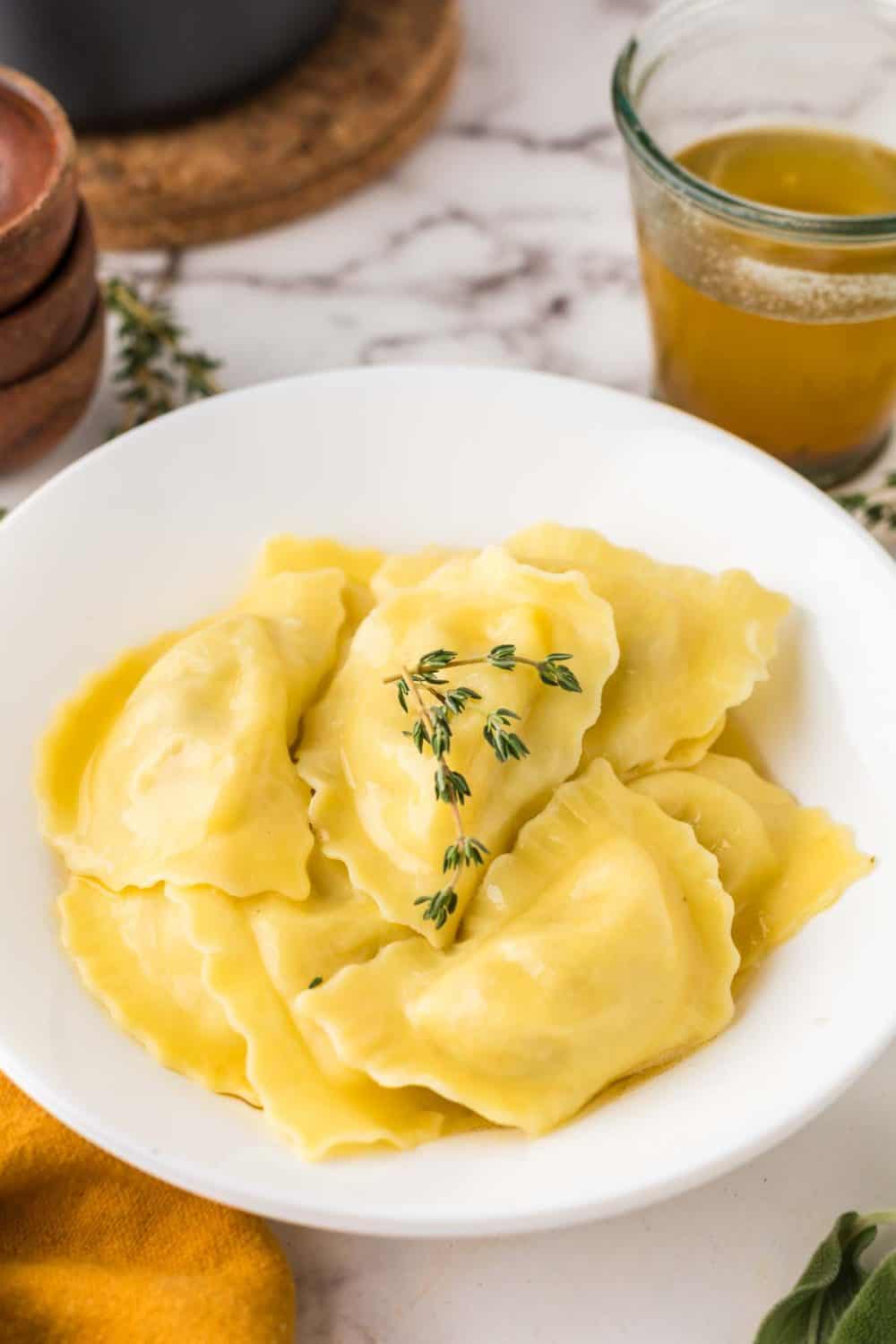
Expert Tips
- You can either use green or purple sage in this recipe! As long as it’s fresh, both will add a wonderful flavor to the butter.
- The herbs will release flavor into the butter as it heats up on the stove, so you will be fine to discard them once it is cooked!
- You’ll notice that your butter will begin to foam before browning, this is completely normal and a good indication that it is almost ready!
- If you use unsalted butter, you will want to add two teaspoons of salt to the pot with the other ingredients.
- Other herbs you can use to add flavor include basil, bay leaves, and rosemary!
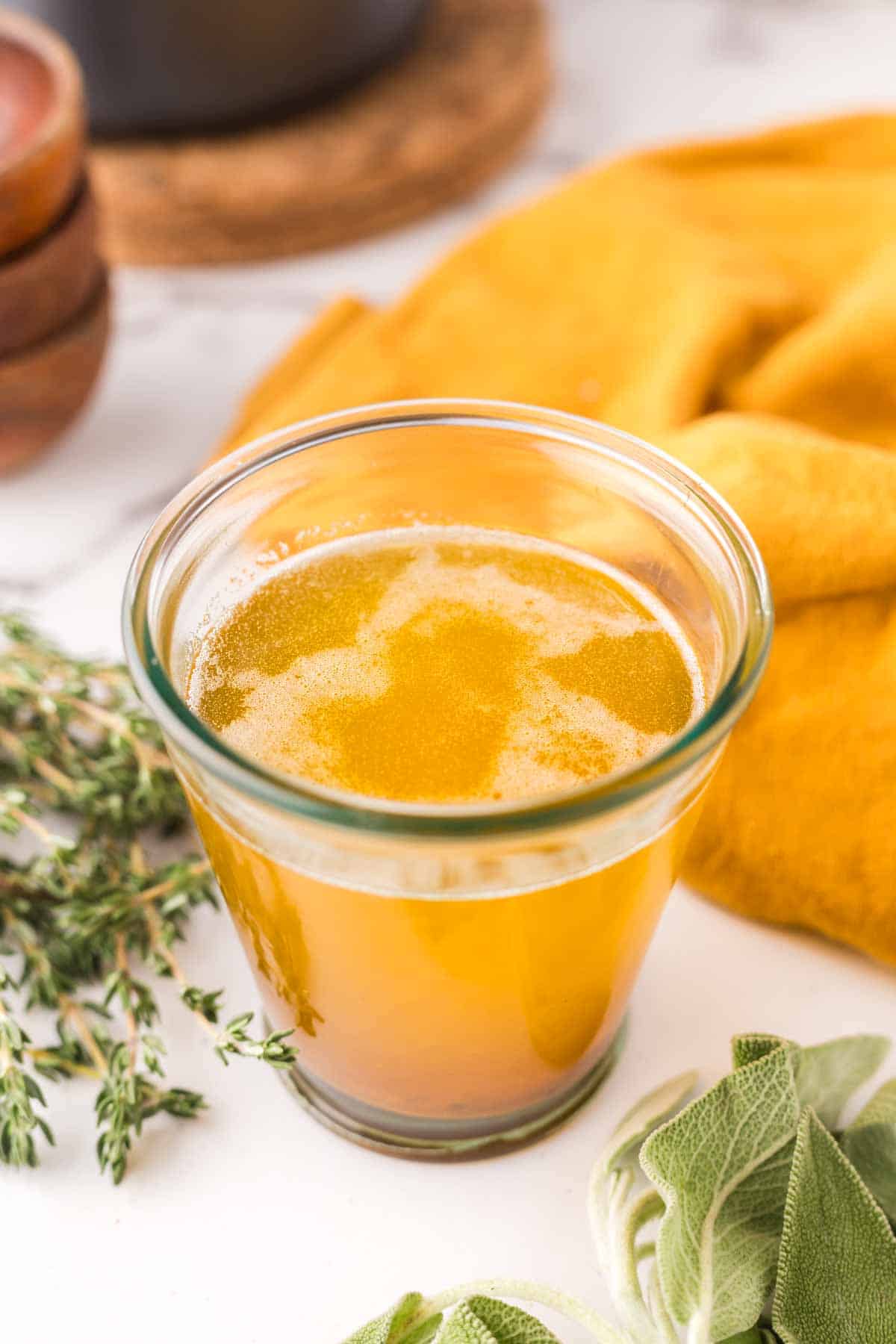
How to Serve and Store Brown Butter Sauce
This brown butter sauce pairs perfectly with pasta, any kind of potatoes like these yummy greek potatoes or hasselback potatoes , or a variety of vegetables! We love to drizzle it on top of tortellini and ravioli. Serve your pasta with a side of garlic bread and Caesar salad or steamed broccoli for a balanced and tasty meal.
If you have leftover sauce, you can store the brown butter in an airtight container in the fridge for up to 3 months to use with a plethora of dishes! You can reheat this sauce by warming it in a small pan or pot over low heat until it is fully melted again.
More Condiment Recipes To Consider
Simple Gingerbread Recipes
Homemade Gingerbread Syrup: Cozy Holiday in a Bottle
Condiments, Marinades & Spreads
Easy Homemade Red Enchilada Sauce
Pasta Dishes
Pumpkin Alfredo
Did you make this recipe? Leave a ⭐️ review and share it on Instagram, Facebook, or Pinterest!
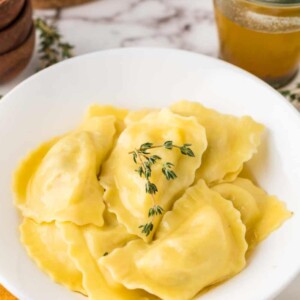
Brown Butter Sauce
Ingredients
- 1 cup salted butter
- 6 sprigs of fresh thyme
- 6 fresh Sage leaves
Instructions
- Combine the butter, thyme, and sage in a small saucepan over high heat.
- Once the butter has fully melted, reduce the heat to medium and stir the butter constantly. Your butter will begin to foam before browning.
- Nice your butter turns golden brown, immediately remove the saucepan from the burner. Discard the herbs.
- Serve and enjoy!
Notes
- This makes 1 cups of sauce.
- This brown butter sauce is best served over pasta. We like to drizzle it on top of ravioli and tortellini.
- Stirring the butter constantly helps prevent the foam from boiling over the sides of the pot.
- Other herbs you can use include basil, bay leaves, and rosemary.
If you are going to use unsalted butter then you will want to add two teaspoons of salt to the pot. - You can store your brown butter in an airtight container in the fridge for up to 3 months.
- Reheat your brown butter by warming it in a small pan or pot over low heat.

